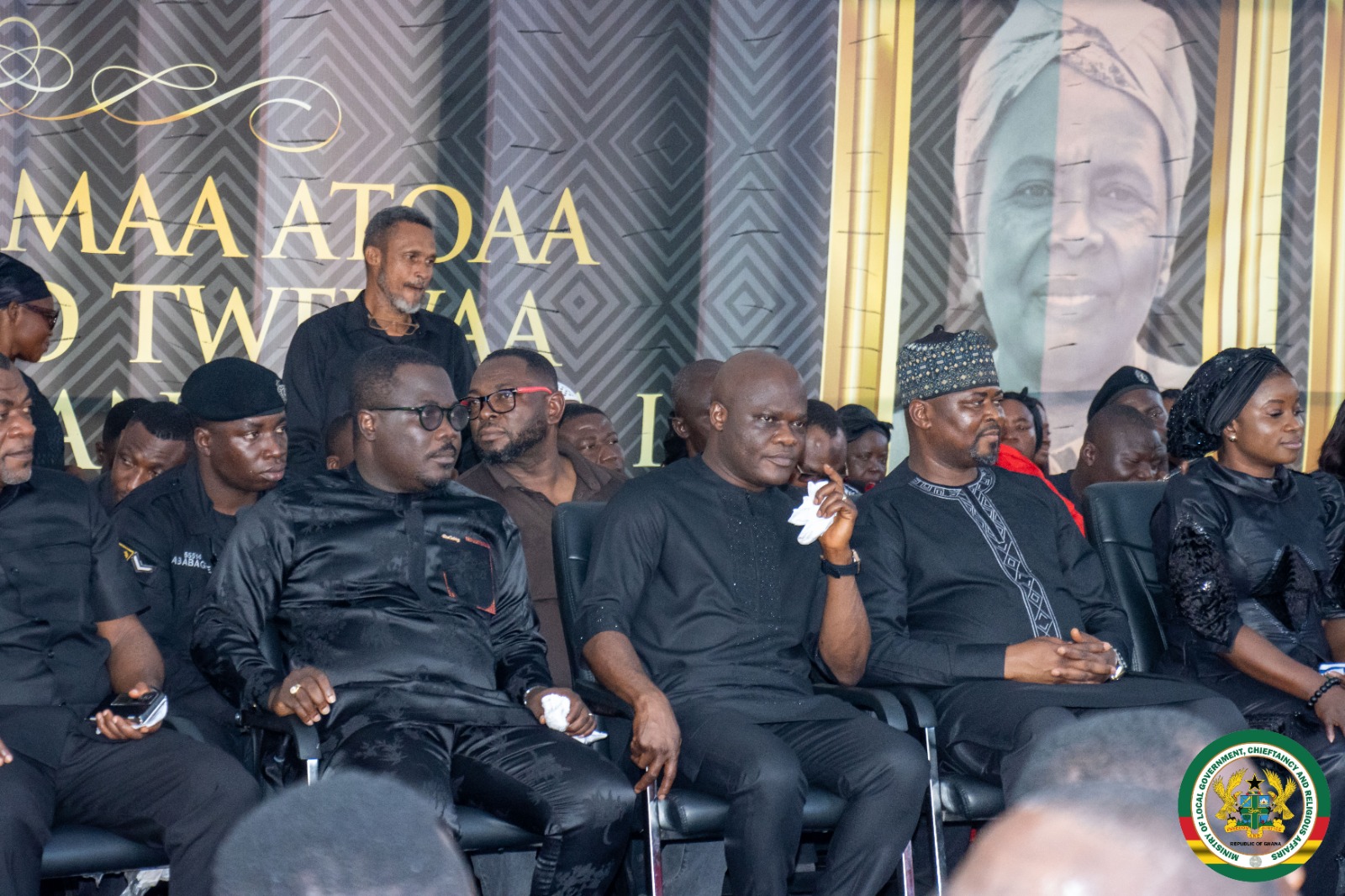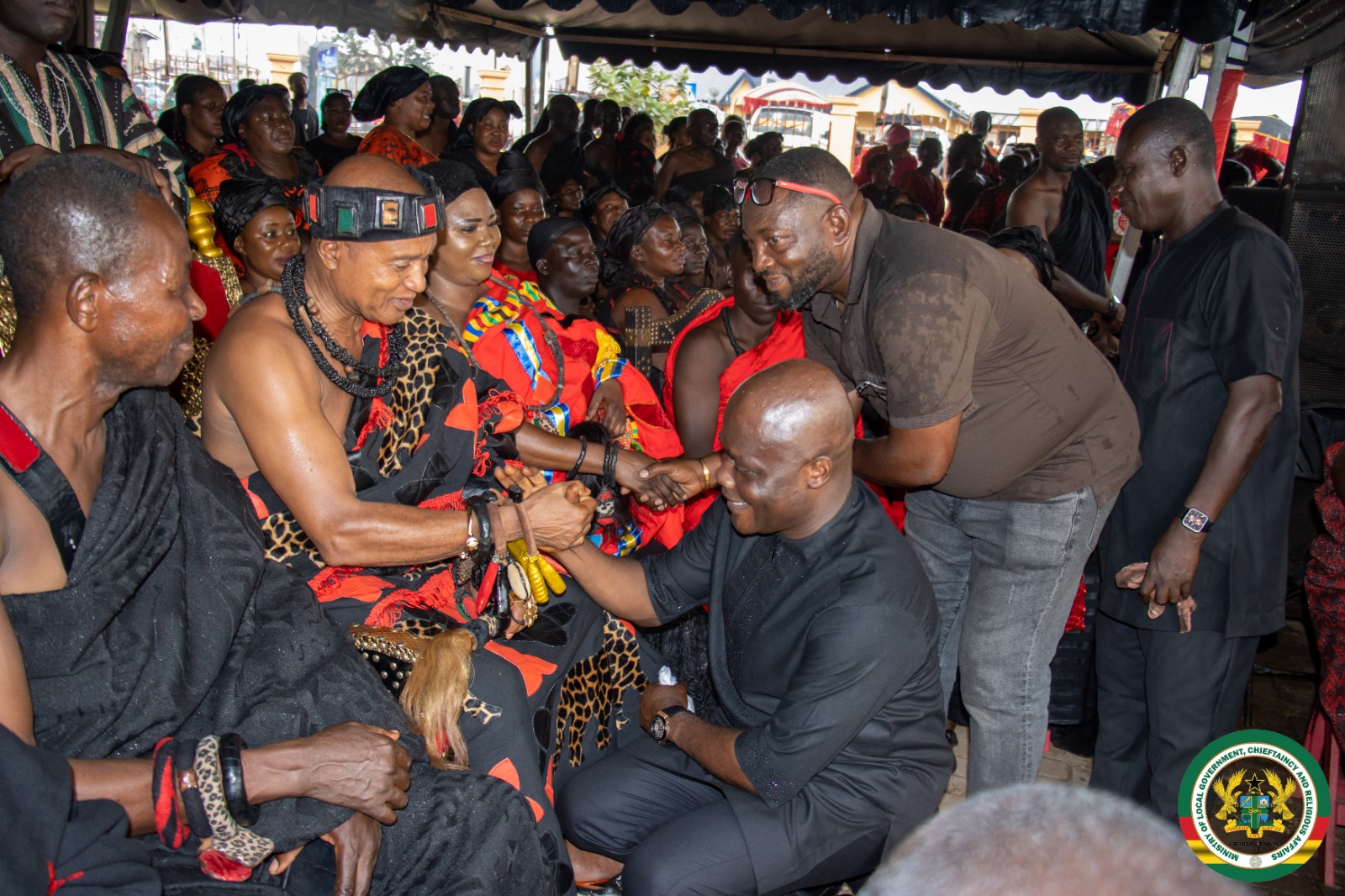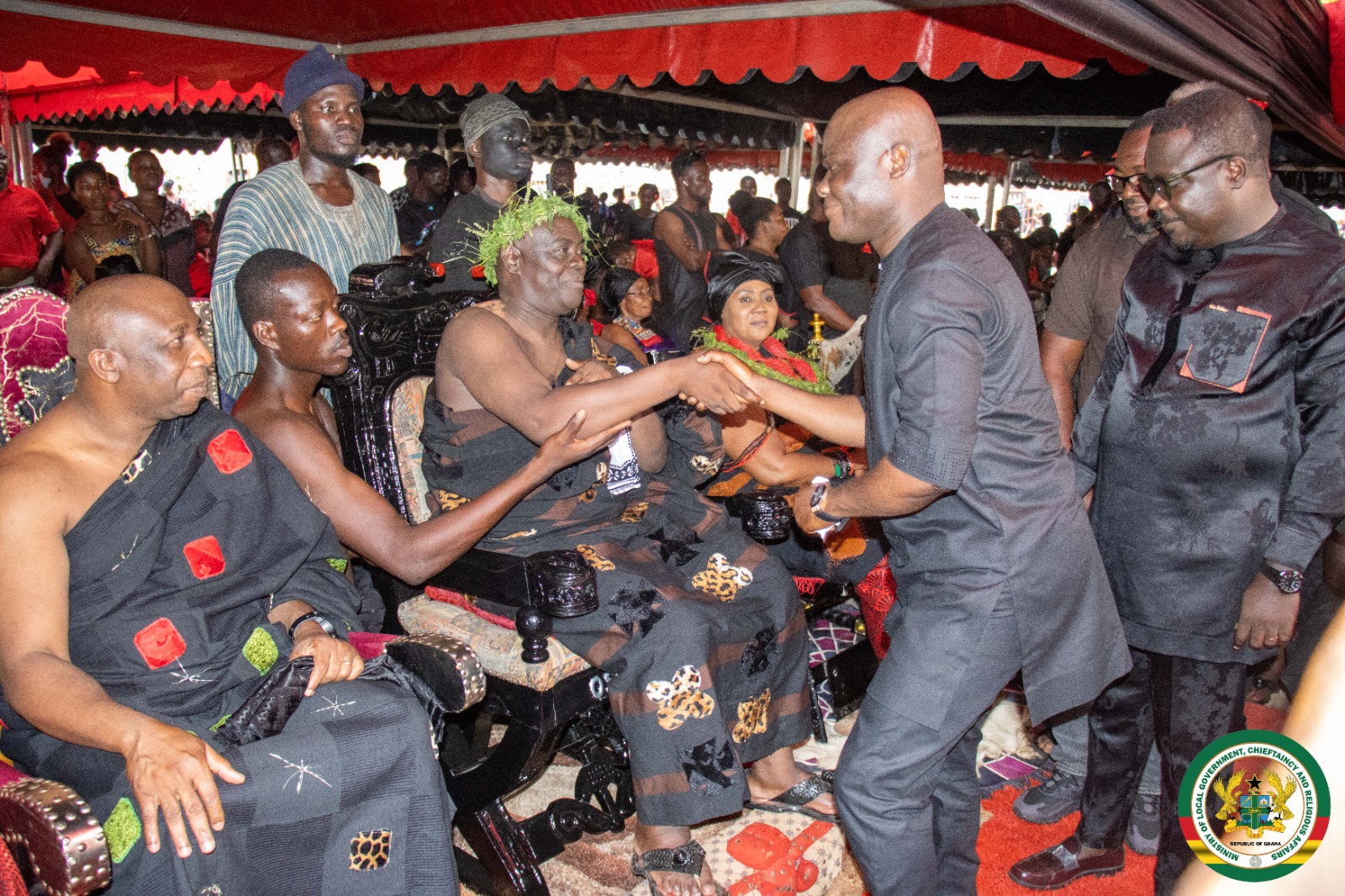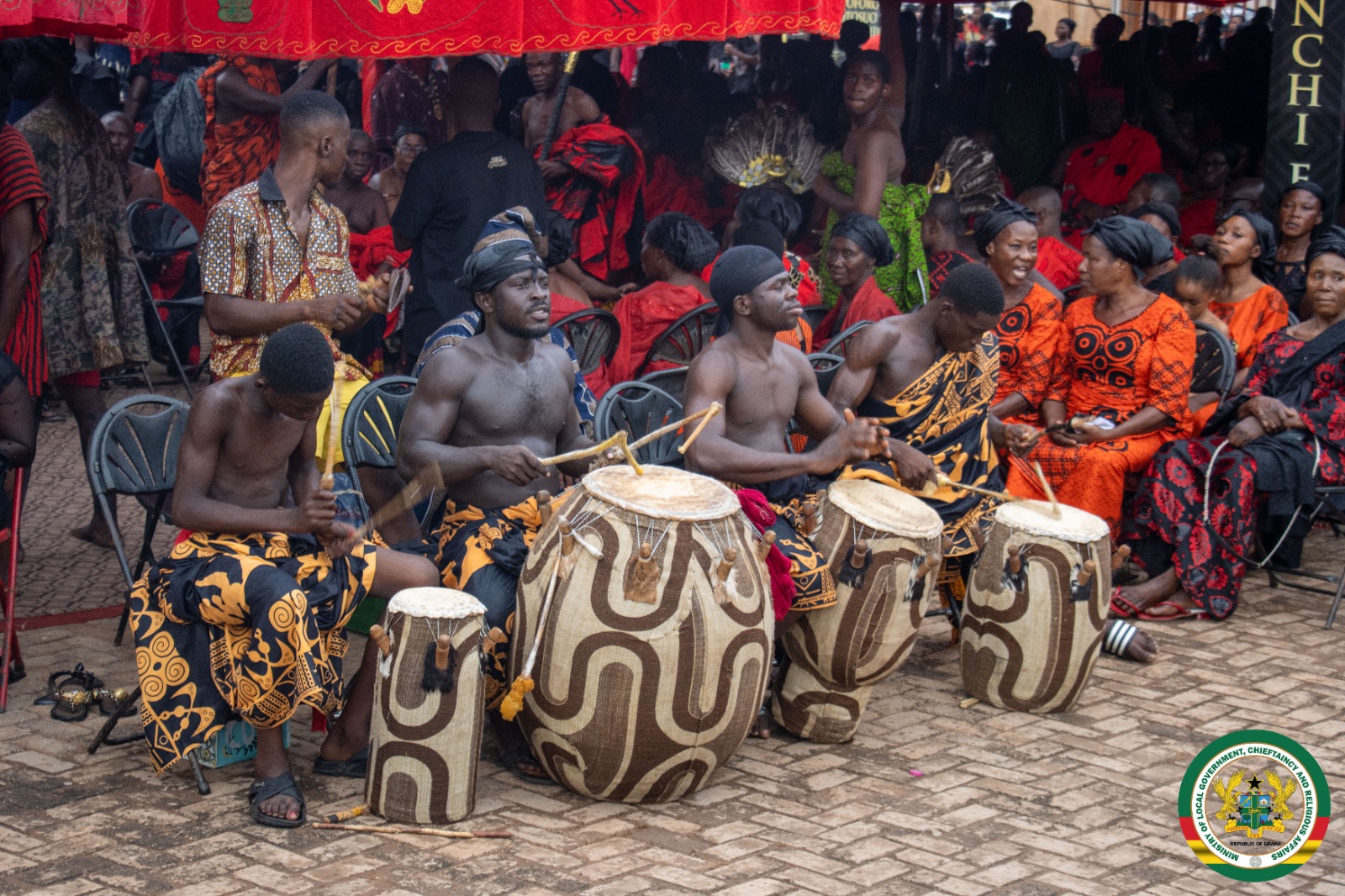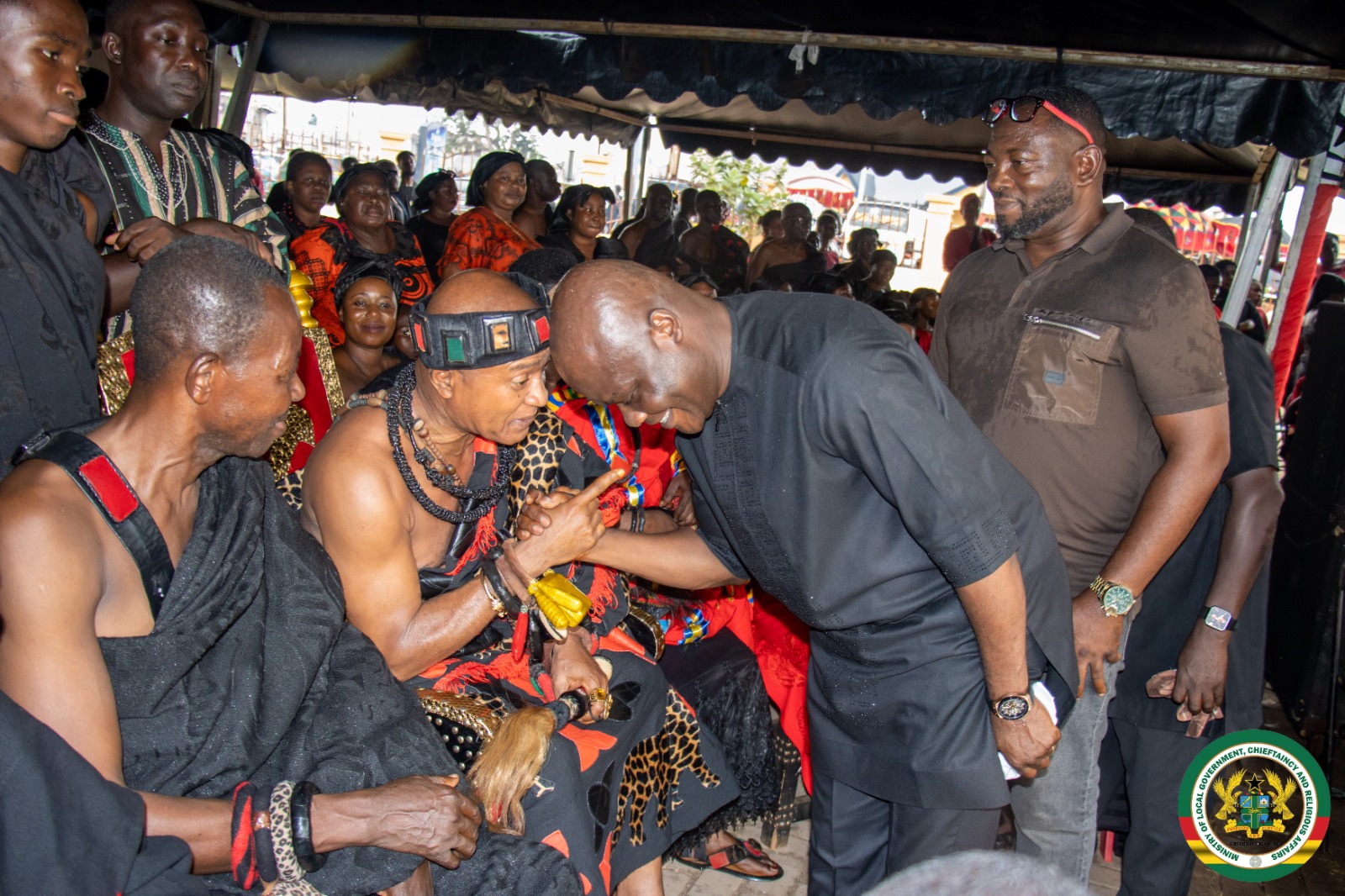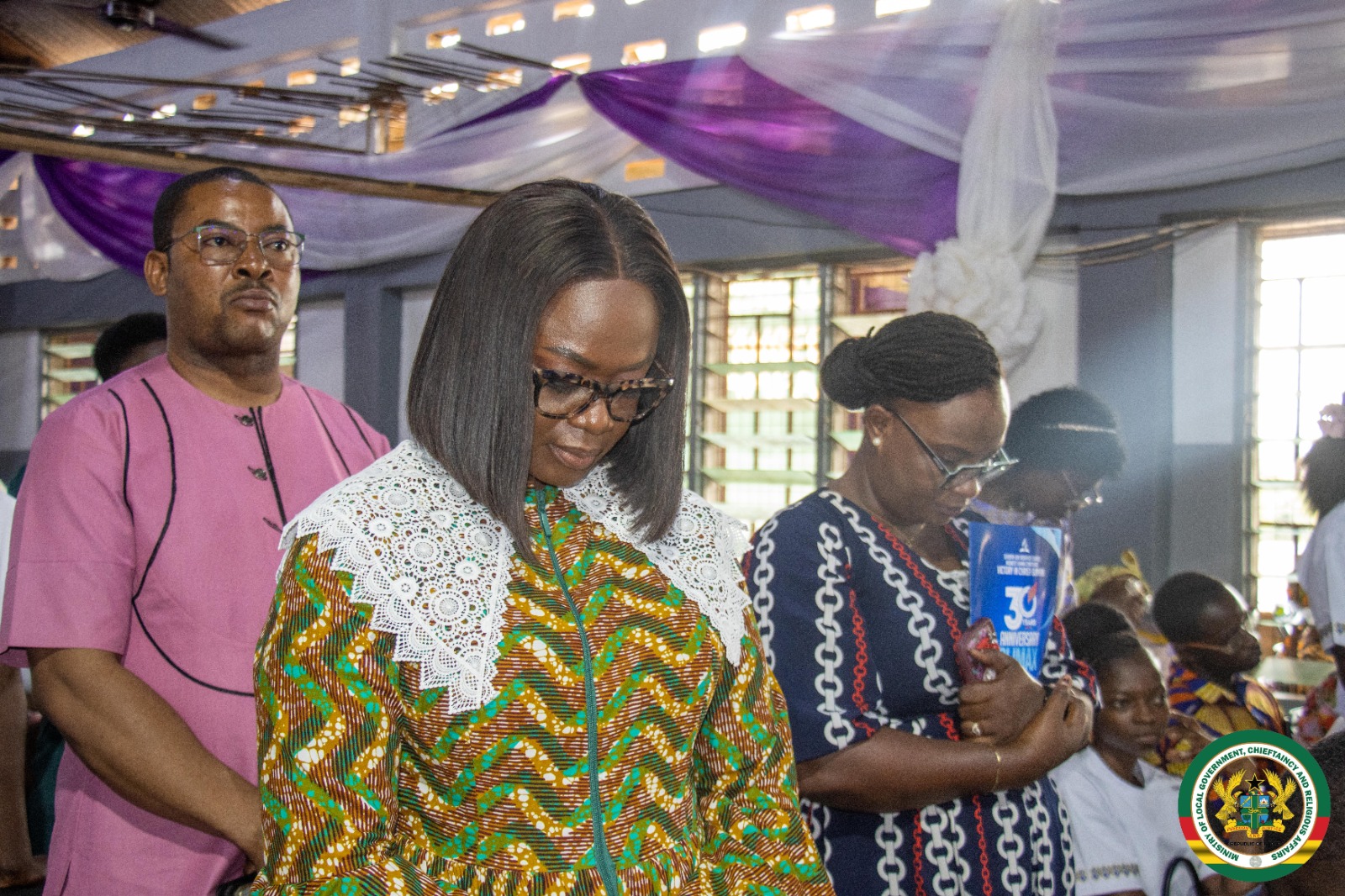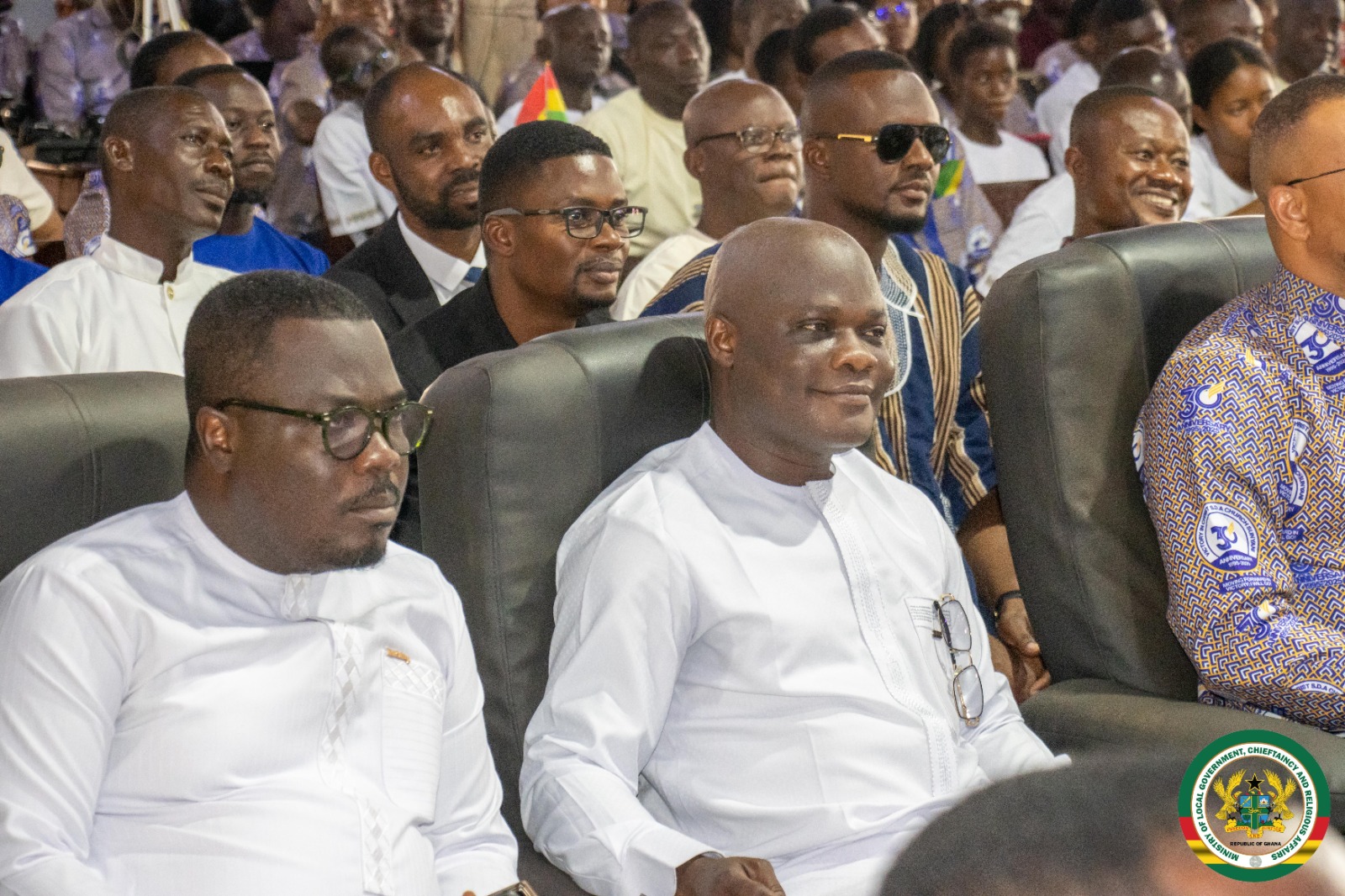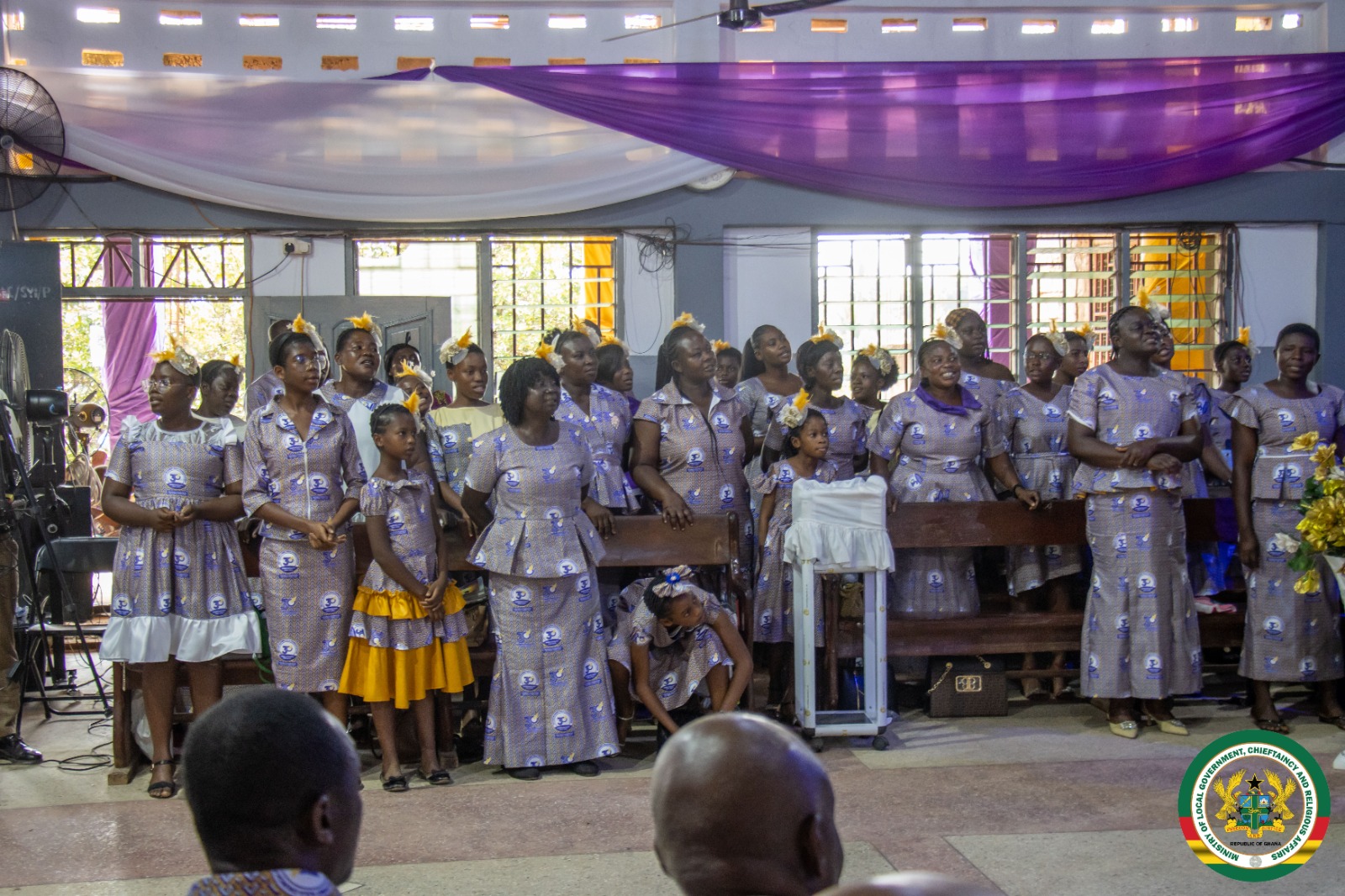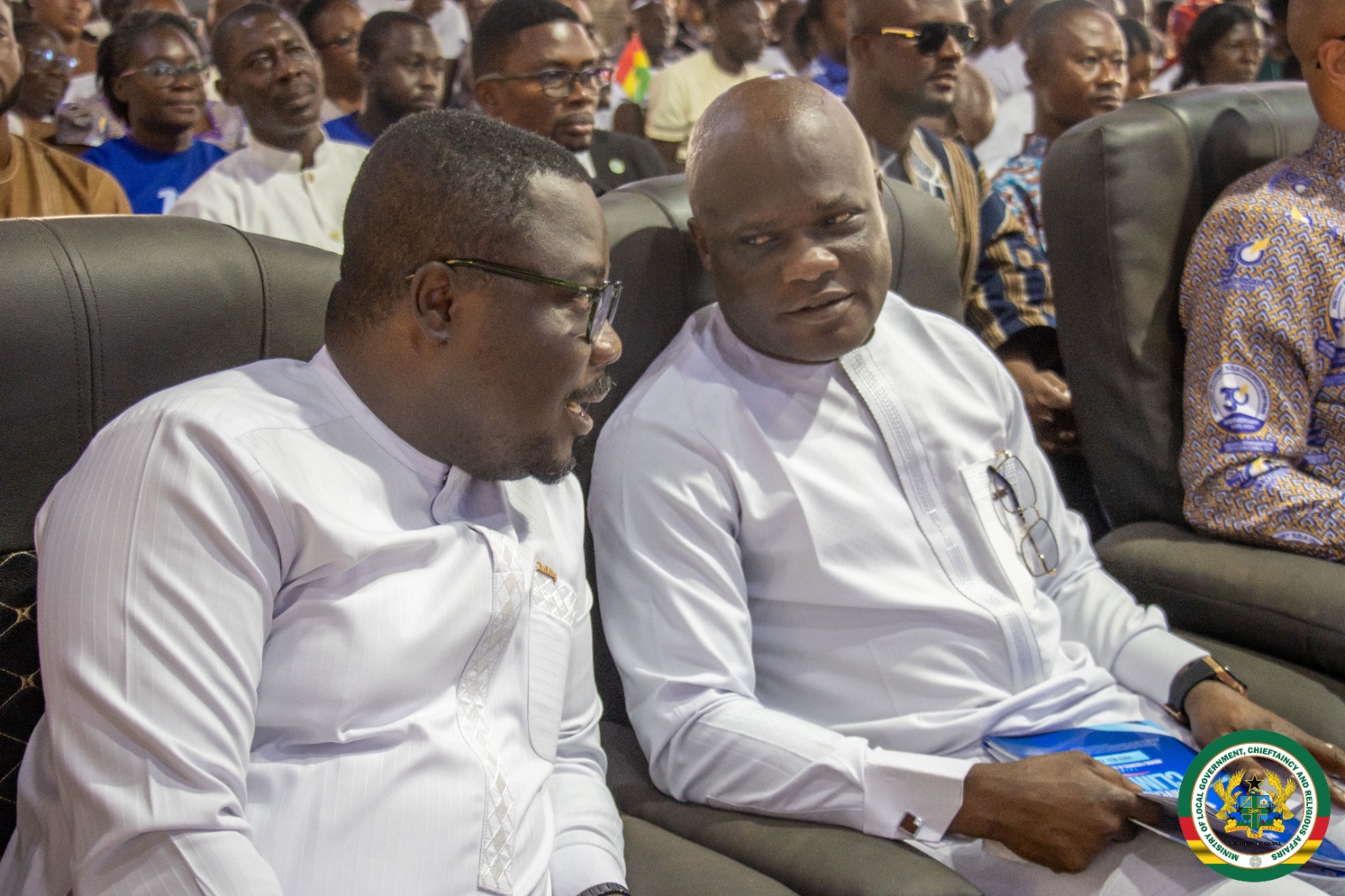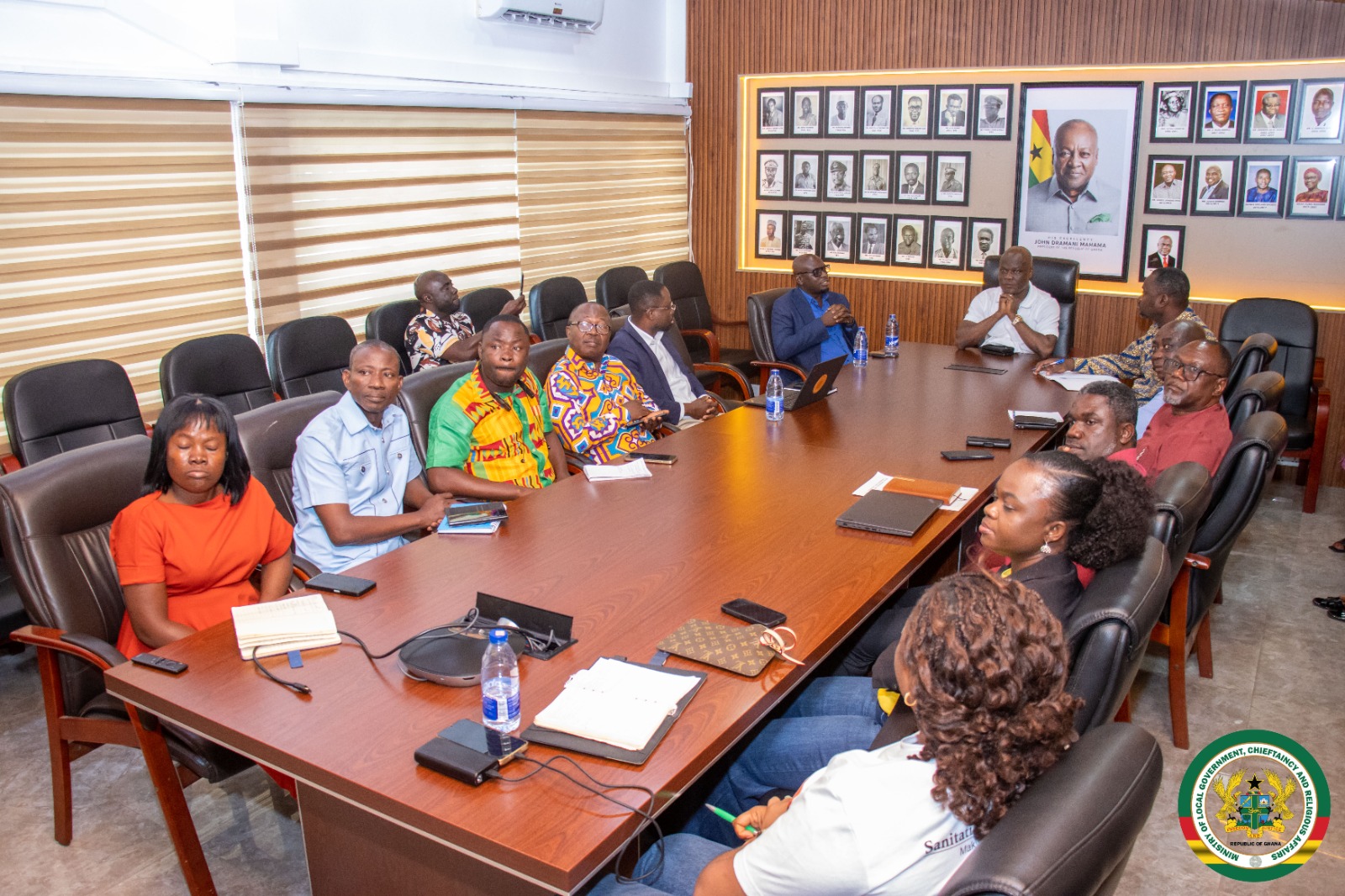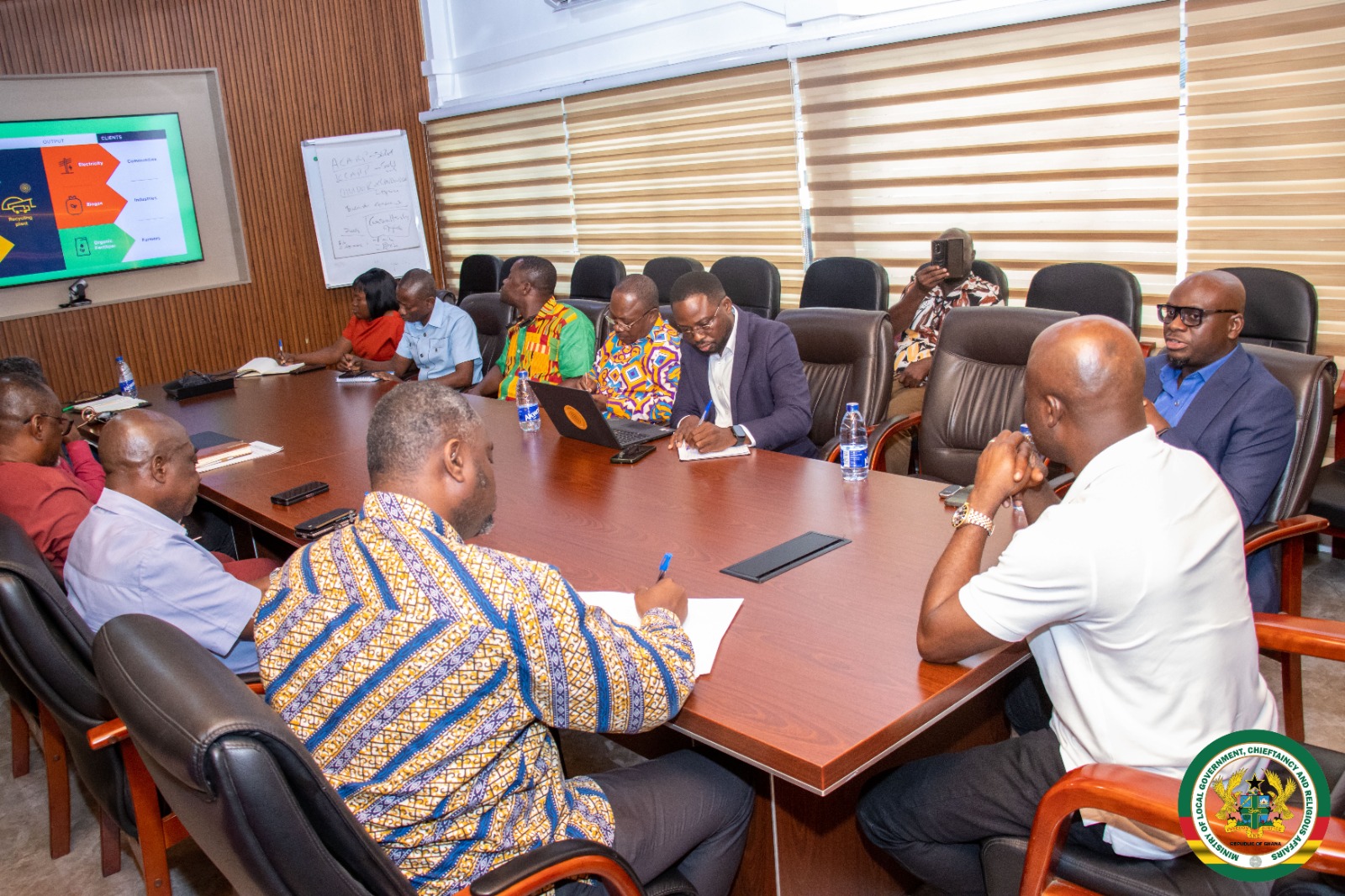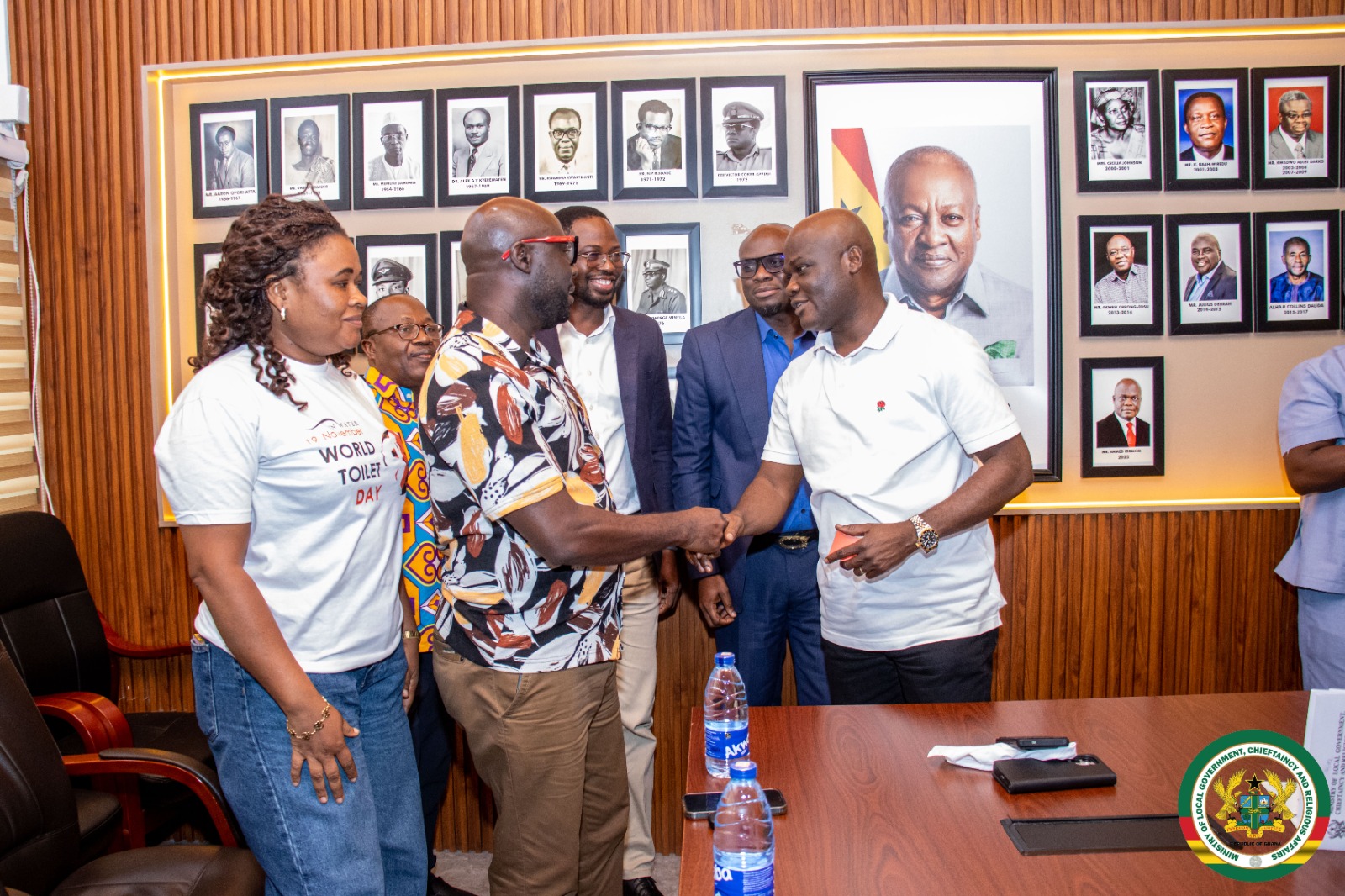The Minister for Local Government, Chieftaincy and Religious Affairs, Hon. Ahmed Ibrahim joined the Chiefs and people of Wenchi Traditional Area on Saturday, 29th November, to pay their last respect to the Quenn mother of the Area, Nana Atoaa Ampoforo Twewaa Otosuo Sramangyedua III.
The ceremony which was a significant cultural rite that precedes the final funeral activities, brought together chiefs, government officials, and community members to honour the memory and legacy of the esteemed queen mother.
As part of the final funeral rites, a three-day mourning was set aside to honour the enduring legacy of the late Omanhemaa Sramangyedua III. There were series of cultural displays, traditional rituals, and a strong presence of indigenes and dignitaries, the ceremonies paid tribute to her impactful leadership and celebrated the deep respect she commanded within the Wenchi Traditional Area.
The Minister led a delegation from the Ministry to pay glowing tribute to the Paramount Chief and elders of the Wenchi Traditional Council for their loss and pledged government’s continuous support to strengthening the role of traditional leaders in Ghana. He was supported by the Bono Regional Minister, Hon. Joseph Addae Akwaboa and the President of the Bono Regional House of Chiefs, Nana Agyeman Badu II, Dormahene.
Their presence confirms the deep respect and national recognition government accords to the late Omanhemaa Sramangyedua III, whose 48 years reign, leadership, influence, and service to the Wenchi Traditional Area has been widely acknowledged for championing women empowerment, settling disputes and a key counsellor to traditional leaders in the area.
Indigenes and well-wishers from across the region trooped in, paying their last respects to the revered queen mother. The heartfelt participation of the community reflected the profound impact Nana Atoaa Ampoforo Twewaa Otosuo Sramangyedua III had on her people and the enduring reverence with which she is remembered.
Source: Hini-Amoako Melody
Public Relations Unit, MLGCRA

